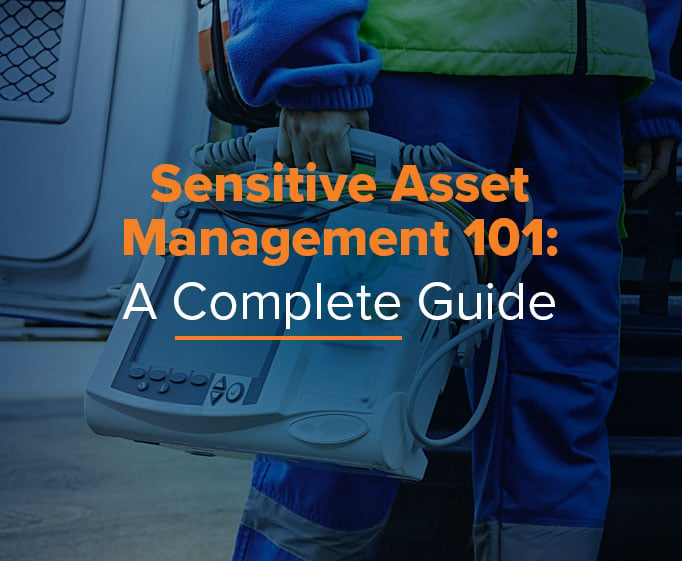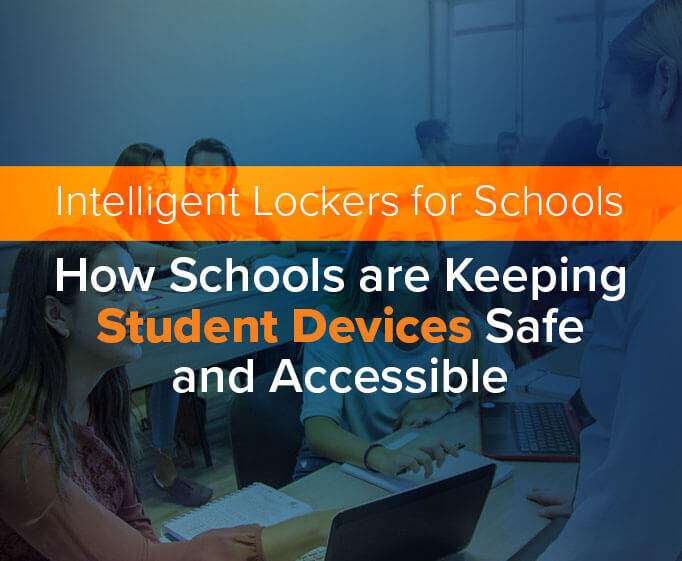By Jay Palter | April 26, 2023
The hospitality industry can be an exciting and rewarding place to work. But it is fast-paced, demanding, and often unpredictable.
Things can go wrong at a moment’s notice, even at the most well-run hotel or resort. That is why many forward-thinking venues are looking to new digital tools and automation technology to help them improve their housekeeping efficiency and maintenance efficiency.
RFID tracking systems can revolutionize hotel and resort operations. But is RFID the right solution for your venue? Usually, you must understand how RFID works, so your business can deploy it effectively without wasting precious time or money. Guests won’t think twice about leaving a bad review because you’re struggling with new hotel housekeeping technology deployment.
This article explains what RFID is, how RFID tracking can help your business, and how RFID key and asset tracking systems are used today in hospitality.
What is Radio Frequency Identification (RFID)?
RFID stands for radio frequency identification, which is a short-range wireless communication standard. RFID tags securely transmit their identity and other important data when placed close to scanners—for example, tap-to-pay credit cards.
RFID technology for hotels offers a few key advantages over other major wireless standards. Most notably, it doesn’t require line-of-sight to work, and signals can pass through wood, plastic, and other common building materials. That means scanners can read separate tags even inside a scanned toolkit, hard case, or other boxes. However, it is important to know that metal reflects RFID signals, so it might not be the best choice in some venues that incorporate large metal surfaces into their interior design.
How Do Hotel RFID Key and Asset Tracking Systems Work?
RFID tracking systems are powerful, flexible technologies that hotels and resorts can easily customize to the ways they work. While the specific installation different venues will use varies, these systems are always built from a few essential core components: storage cabinets, RFID tags, readers and access terminals, and management software.
Storage Cabinets
RFID tracking systems may be advanced, smart technology, but they must still be built on top of secure, reliable storage cabinets. These hold keys, mobile devices, and other important equipment when those assets aren’t used. In addition, cabinets often include charging ports to ready electronic devices and data cables for fault monitoring.
Advanced tracking system cabinets are modular, meaning you can stack and configure them for different floor plans and use cases. For example, a resort with a golf course and other recreation venues may need to store landscaping equipment and toolkits for repairs. A city center hotel may want rows and rows of key racks for the keys to its doors and closets.
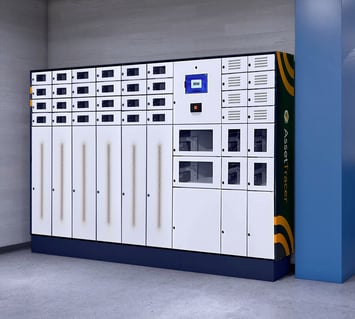
RFID Tags
RFID tags power modern tracking systems. In hotels, the most common variety is a passive tag without an onboard battery. Think of the small RFID chips embedded in credit cards. They transmit their identity when someone brings them close to an RFID reader on the exterior of a storage cabinet or distributed throughout your facility.
Active-powered RFID tags with a built-in battery are also available. They have a greater range but are also bulkier and more expensive, making them suitable only for tracking especially high-value assets.
In hotel tracking systems, the tags are usually attached or embedded into equipment. For keys, that typically takes the form of an RFID fob attached to the key ring that doubles as the locking mechanism in the storage cabinet. Tagging varies much more with equipment and kit items. Some electronics, like hotel radios and mobile devices, come with embedded RFID tags or a fob slot where you can add one. With other equipment, you need to attach the tag to the exterior.

RFID Readers
RFID readers emit a radio signal that bounces off nearby tags and returns identity data. These transactions happen in seconds, and readers can scan multiple tags simultaneously. Most hotel RFID tracking systems will have a reader mounted on or near the storage cabinets so your staff can scan items as they take or return them.
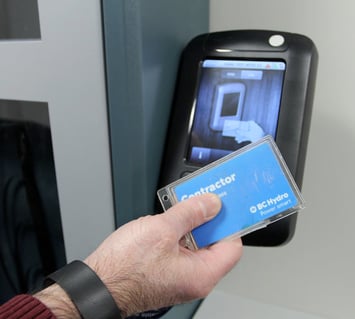
Access Terminals
The access terminal on the front of the storage cabinet is your staff’s primary interface with your hotel’s RFID tracking system. Users authenticate themselves at the terminal when they want to sign out or return a stored item. In addition, access terminals can utilize one more access control method, such as swipe cards, PIN codes, or biometrics, such as fingerprint, iris eye scan, or facial recognition.
Advanced tracking systems use touchscreens for access terminals for customized workflows. For example, when a housekeeper signs out cleaning gear, you can present checklists to ensure they have everything they need for better quality control. You can use these checklists to gather valuable transactions and use information.
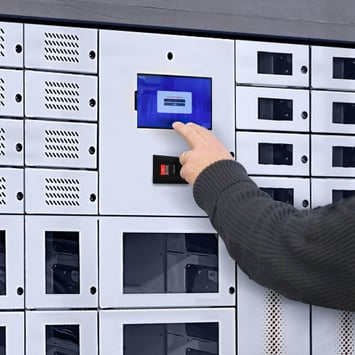
Management Software
Data from the RFID readers, cabinets, and access terminal all flow back to a software management dashboard that hotel and resort managers use to get real-time tracking data on RFID-tagged equipment and keys. Modern software dashboards are designed as web apps, which means they’re accessible from any company device, like authorized desktop computers at the front desktop or in the back office or smartphones and tablets in the field.
Through the dashboard, your managers can receive real-time tracking alerts if keys or equipment are overdue for return. Your managers can also generate reports that show them detailed tracking histories. As a result, they can help identify meaningful trends you might not see otherwise. For example, is second shift housekeeping always late returning tablets? Is one user responsible for an overwhelming majority of key losses?
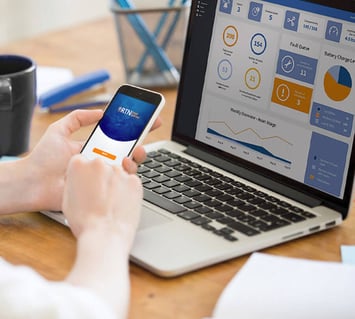
How Can RFID Tracking Systems Help Hotel Operations?
RFID tracking systems improve operations in many important ways.
They reduce costs
RFID for hotels can save your housekeeping, maintenance, and customer service staff hours of labor every week by automating tedious, manual equipment and key management. The RFID tracking system will automatically compile everything. Those hours will quickly add up and offset the upfront costs of an RFID tracking system. That is before any operating efficiencies you’ll gain. For example, managers won’t spend as much time overseeing asset transactions and monitoring reports.
Generate new housekeeping efficiencies
Your hotel housekeeping efficiency when you know precisely where vital keys, equipment, and mobile devices are at any time, who signed them out, and when they’re due for return. You won’t waste time hunting for missing equipment.
Improve employee accountability
Every transaction your housekeeping, maintenance, or service staff make is tracked. They enforce better accountability among staff signing keys and equipment in or out of an RFID tracking system. They record the condition of everything signed out.
Automating equipment and key management also reduces the opportunities for staff to lose vital assets. For example, suppose a staff member is ever late returning important equipment. In that case, the system can send an immediate alert to supervisors so they can track it down and get it returned to circulation.
Check out our Hotel Safety and Security Checklist with 12 Vital Protections.
Standardize essential workflows
Smart key and asset tracking systems do more than just monitor the physical materials they store. They offer important insights into the workflows within which those items are used. Better tracking will help you standardize important hospitality workflows so that work is carried out consistently, reliably, and with good feedback when errors occur. For example, you’ll know if any housekeepers start their shifts without cleaning kits, tablets for staff communication, or essential keys.
Use Cases for RFID Tracking Systems at Hotels and Resorts
Room and fleet key tracking

RFID tracking systems never tire at the end of a shift, call out sick, or make human errors because they’re rushing. Instead, everything is tracked and accounted for every time a staff member uses it.
They’re a great tool for managing door and vehicle key transactions, so you always have an airtight record of who took the keys and when they’re due for return. Customer service requests won’t be stalled trying to hunt down who has a key to the storage room or a VIP guest room.
Housekeeping quality control

Many hotels provide their housekeeping staff with tablets to improve the quality and consistency of their service. Apps on the tablets provide checklists when they turnover rooms so staff knows what they need to do in every room. Supervisors can include custom instructions for VIPs too. Those tablets also include communication tools so the housekeeper can check in with coworkers if they need extra supplies and confirm in real time when a room is ready for the next guest.
But those tablets need to be securely stored and charged because work will suffer if they’re not ready for the next shift. RFID tracking systems keep tablets and other electronic devices charged and ready. And if a housekeeper doesn’t return one at the end of their shift, their supervisor can get an instant alert so they can retrieve it before it gets lost in the shuffle.
Temporary guest storage
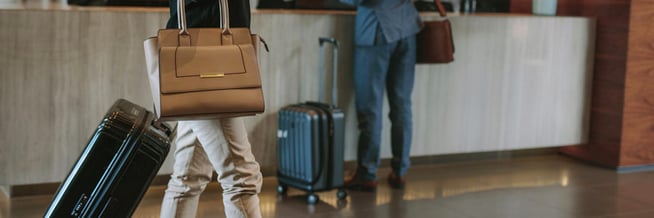
You can also configure RFID tracking cabinets for temporary asset storage. For example, suppose guests arrive with valuables they don’t want to keep in their room. In that case, they can generate a secret passcode for a cabinet compartment that only they can access using biometric information.
Discover the Power of RFID for Hotels and Resorts
See how RFID tracking systems work, how they’re used in various industries today, and some best practices for adapting them to your organization’s workflows.
Subscribe to our blog

Jay Palter
Vice President of Marketing & Partnerships
